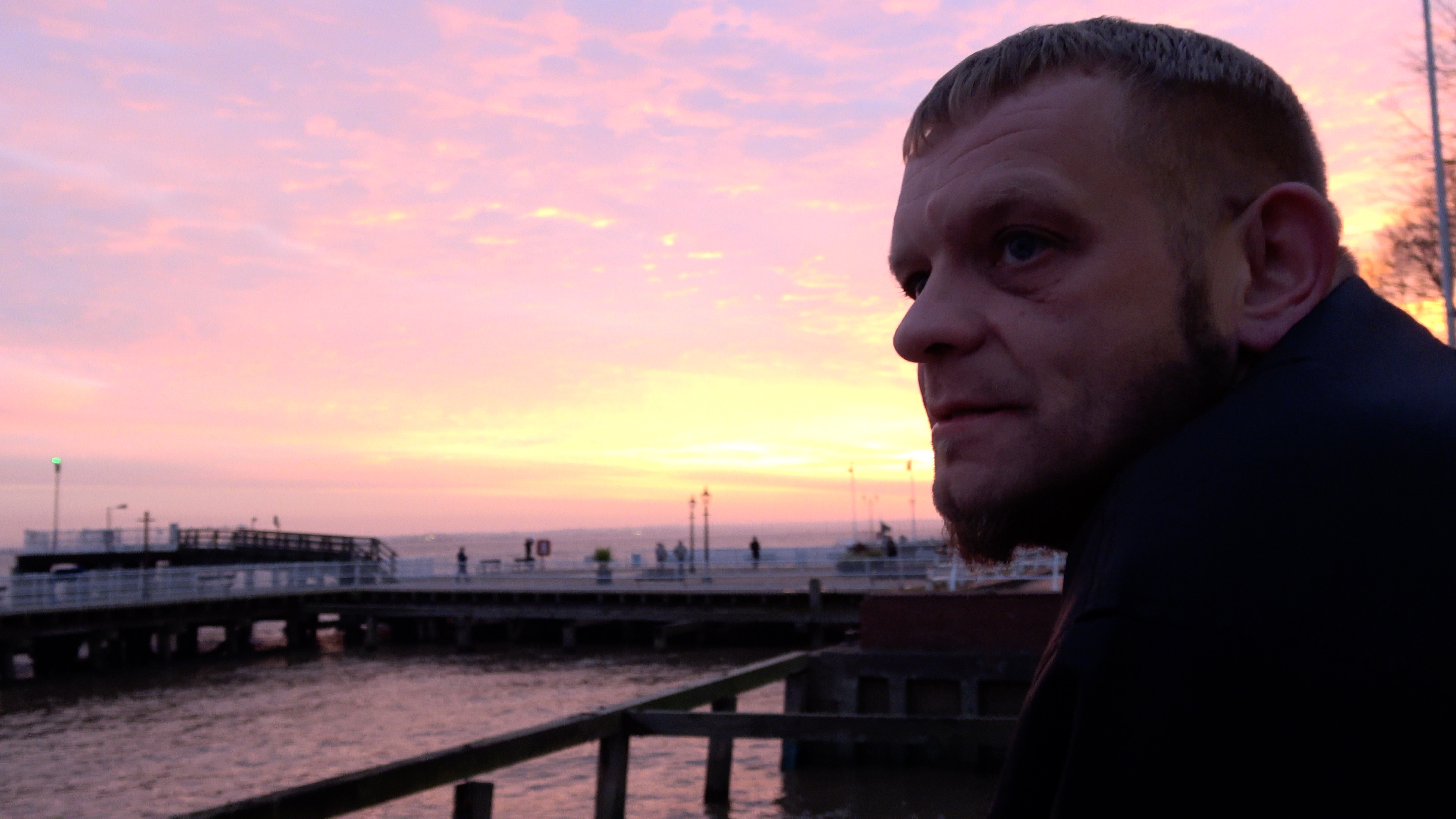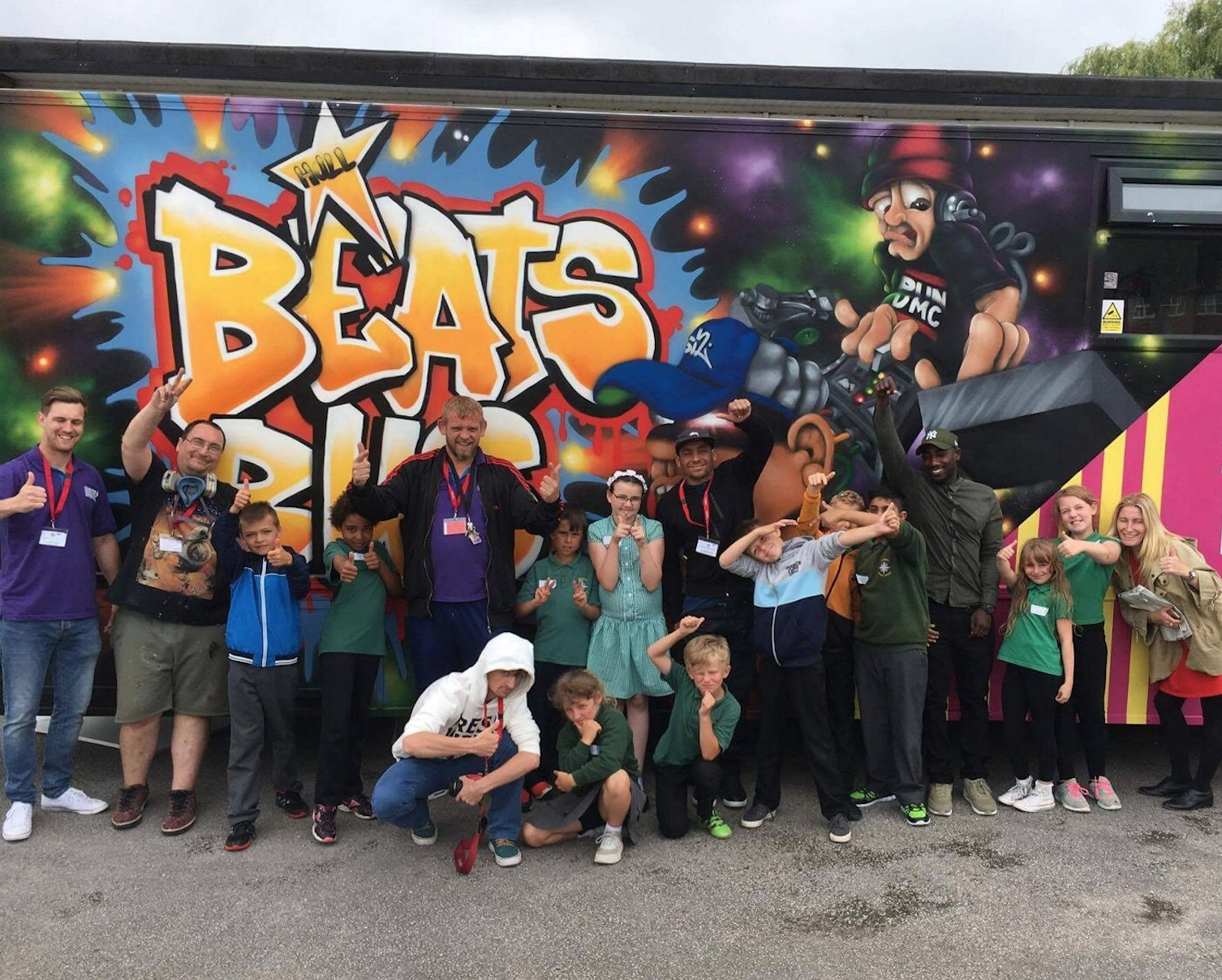A Northern Soul – a story of a striver with a happy ending
Posted on 28 Nov 2018 Categories: Blog, Books and films, From Rethinking Poverty, Local initiatives, The place we want
by Barry Knight and Caroline Hartnell
Moved, humbled, inspired, sad, angry – these are some of our feelings after watching A Northern Soul, a film by Hull-born documentary-maker Sean McAllister, shown on BBC2 on Sunday 18 November.

The story
Set in 2017, when Hull was the UK’s city of culture, A Northern Soul tells the story of warehouse worker Steve Arnott and his dream of getting a hip-hop bus on the road and bringing creativity and self-expression to young people in Hull’s marginalised communities where city of culture activities will not reach. Built on the fishing industry, with a tight-knit community, Hull went into steep decline in the 1970s, a process that eight years of austerity has accentuated. Now more than one in three children in the city live in poverty and Hull is one of England’s 20 most deprived areas. Money for arts and music in schools has been slashed.
The story starts with Steve’s employer, Arco, a city of culture sponsor, being persuaded to lend him the truck that becomes the Beats Bus. For six weeks Steve and his team run workshops in schools to find the children who will benefit most from the Beats Bus experience. Among them are Harvey, 8 years old with a stutter who is being bullied at school and loves rapping, and the irresistible and talented Blessing. We see the children learning hip-hop and devising raps. Steve has to persuade Blessing to carry on after his parents are unable to attend their first performance. Nine months on, the Beats Bus kids have performed at three festivals and auditioned for Britain’s Got Talent.
The story is interspersed with snippets about Steve’s life. We learn about his daughter who he can only see every two weeks because she lives 90 minutes’ drive away. Since he can’t drive, he relies on friends to give him lifts. Since the break-up of his second marriage, he has moved back with his mother and reconnected with his father after decades. ‘I never had a dad,’ he says. ‘A dad is someone who tries to point you in the right direction, to keep you on the right lines.’
We hear about the loans he takes out to pay for driving lessons, among other things (though we never hear of a driving test) – a third of his wages go on servicing his debts. We hear of an ‘investigation’ at work that leads to him being demoted and given a pay cut. We hear details of the IVA (individual voluntary arrangement) he takes out under which his accumulated debts will be paid off at the rate of £131 a month for six years – but he won’t be able to get any credit, he tells us, and how will he manage his life without loans to top up his [£15,000 to £18,000 yearly] wages? Midway through the film, he is at a low ebb – tired, finding it hard to motivate himself, with ‘fuck all’ to show for his 42 years. He finds the demotion at work particularly hard to take. He can’t look into the future, taking it day by day.
Steve has few prospects because he has done warehouse work for 27 years. Can the Beats Bus be his way out? This is an open question throughout the film. Steve’s hip-hop project is wonderfully successful, but towards the end of the year it seems that Arco will donate the bus elsewhere. But in the end Steve gets the bus and £11,500 from crowdfunding to run the Beats Bus as a social enterprise, enabling him to give up his warehouse job and to focus full-time on running music, performance and art workshops for young people around the city. Since the film has shown the total amount raised through the crowdfunder has surpassed their £20,000 target.
Our reactions
So, back to our reactions.
Moved – who could not be moved by the sight of 8-year-olds Blessing and Harvey and the other members of the Beats Bus crew rapping about Hull, their lives and slavery? ‘Awesome’ says Harvey when Steve delivers their first CD. Harvey, his stutter gone, is working on a new rap about slavery.
Humbled and inspired – to see how much Steve achieves alongside his draining warehouse job. A recurring image is that of Steve setting off to work on his bicycle in the dark at 4.30am.
Sad – to see how hard people’s lives can be and how limited the life chances of the children on Hull’s estates.
Angry – that in the world’s sixth largest economy our social, political and economic systems dictate that so many people and their children live in poverty. The film gives reality to the description of poverty in the UK by UN envoy Philip Alston as ‘not just a disgrace, but a social calamity and an economic disaster, all rolled into one’.

Implications for rethinking poverty
There are at least five reasons why this film is important for the debate on Rethinking Poverty.
The first is the means of communicating. A Northern Soul is worth more than the endless think-tank reports describing poverty. Rather than abstract statistics, we have a real person who we can identify with. The film maker, Sean McAllister, is not part of the elite twitterati, but – like Steve – left school at 16 and went to work in a warehouse. The two are friends; they talk openly and directly about Steve’s life and the issues he faces, with no condescension from a film-maker who knows exactly where he is coming from. For Sean, the way out was the camera; for Steve, it is hopefully the Beats Bus.
The second is the clear message that poverty is something that hits working people just as much as those without jobs. Steve gets up early in the morning, cycles to work, toils through a long shift, and comes home to face his debts.
The third is the reality of the serious structural issues in our society, highlighted by the fact that Steve can be poor despite his hard work. There are no quick fixes or policy changes available here. There are no good jobs that are coming to rescue this situation any time soon where the traditional source of wealth has all but dried up. We need to rethink the way our society works to address the underlying inequality that ruins countless lives in places like Hull.
The fourth is the power of human agency. Steve shows that, even with such limited resources, it is possible to change things for yourself and others. The key is creativity and Steve uses this at every turn to keep going, despite ups and downs and his inner pain. Against all the odds, Steve is a leader who can transform his own life and the lives of others.
The fifth is the importance of children. The film shows the power of children to rise above difficult circumstances if they are given the opportunity to develop their talents in the company of a sympathetic mentor. Most interventions don’t do this and there are clear lessons about how to work with children in this film.
Visit https://uk.gofundme.com/hullbeatsbus if you’d like to support the Beats Bus project.
Click here to watch A Northern Soul on BBC iPlayer.
Want to keep up-to-date with more articles like this? Sign up to our newsletter.
Posted on 28 Nov 2018 Categories: Blog, Books and films, From Rethinking Poverty, Local initiatives, The place we want
